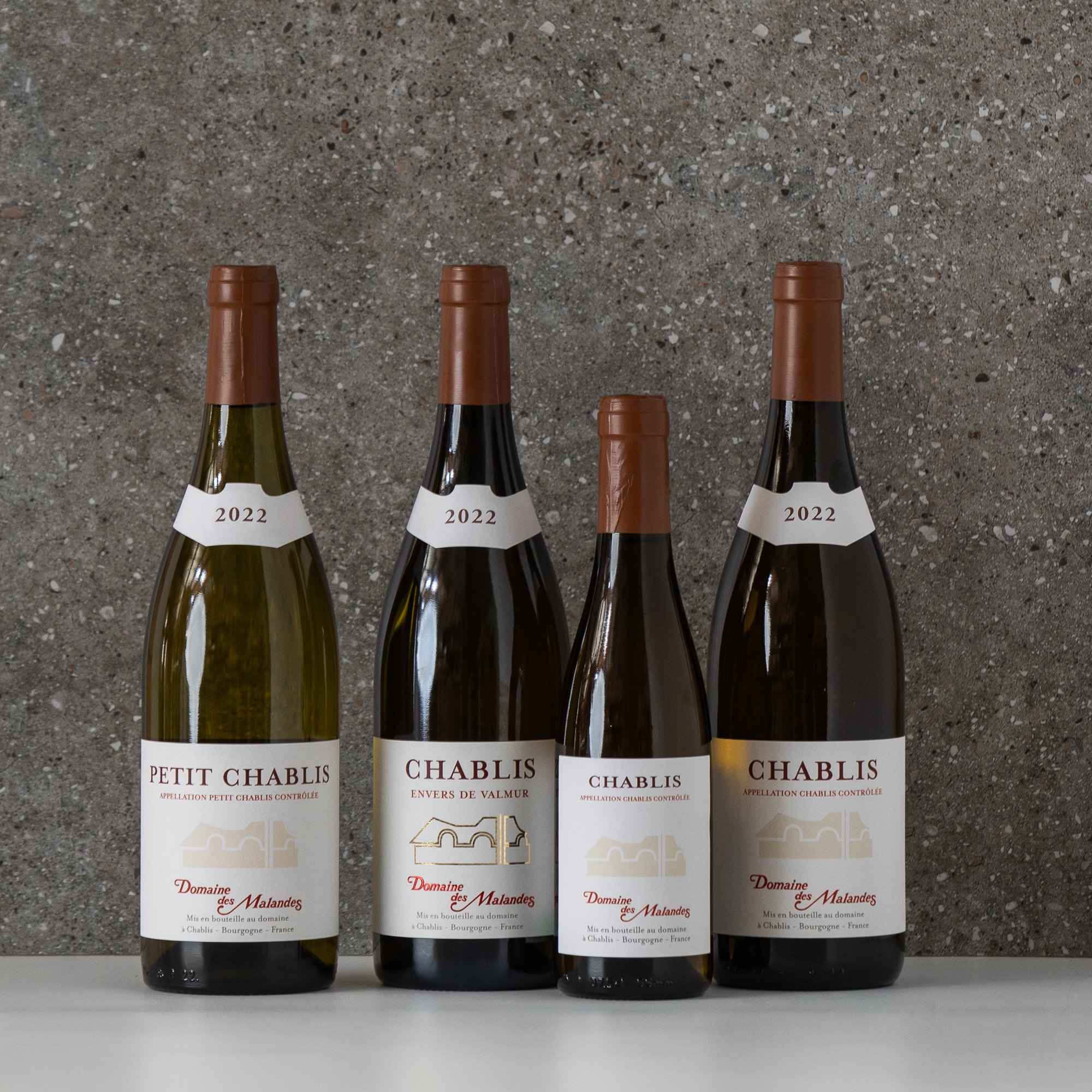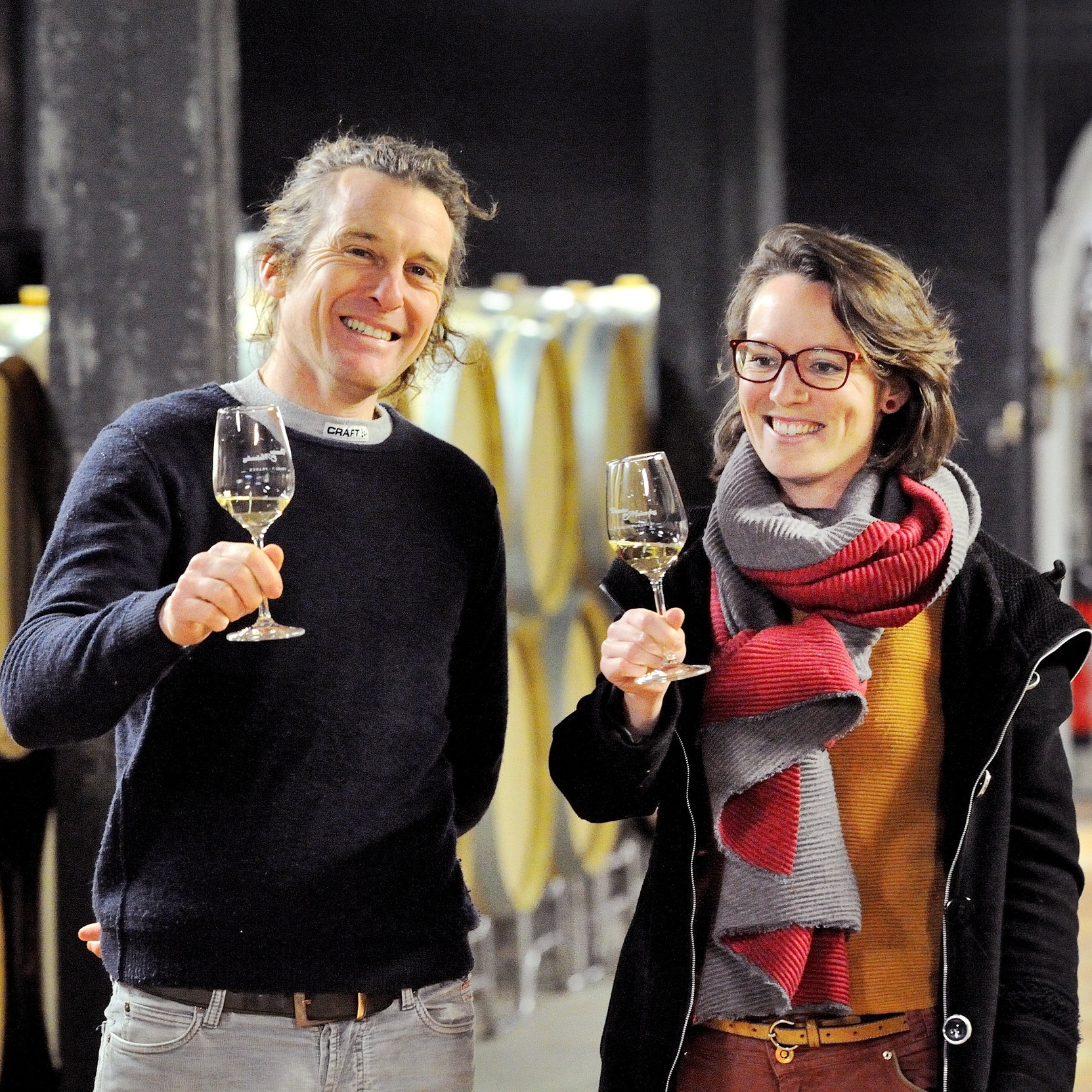DOMAINE DES MALANDES - CHABLIS
ORGANIC
—
2021 AOC Saint Bris, Sauvignon Blanc
2022 AOC Cotes D’Auxerre Blanc
2022 AOC Petit Chablis
2022 AOC Chablis
2022 AOC Chablis “Envers de Valmur”
2022 AOC Chablis 1er Cru “Vau de Vey”
2022 AOC Chablis 1er Cru “Cote De Lechet”
2022 AOC Chablis 1er Cru “Montmains”
2022 AOC Chablis 1er Cru “Fourchaume”
2022 AOC Chablis 1er Cru "Mont de Milieu"
2021 AOC Chablis Grand Cru “Vaudésir”
2021 AOC Chablis Grand Cru “Les Clos”
Read More...
Lyne Marchive and her husband founded this domain in 1986. Many of the vineyards were established by Lyne’s family, The Tremblays, in the 1940s and 1950s when it was common practice to swap a hectare of agricultural land (suitable for growing wheat) and receive two hectares of vineyards in return (including premiers crus). Lyne’s grandfather was a vigneron, and Tremblay is a very old name in the Chablis region. Lyne originally planned to continue this family lineage and attend wine school in Beaune, but upon discovering she would be the only female in the class, she changed her mind.
She has been managing her estate since 1972, and has employed oenologist and winemaker Guénolé Breteaudeau since 2006. Together they continue to improve the high quality of their wines year after year.
The historic wine-producing town and region of Chablis is positioned in northern-central France, and produces AOC Chablis wines exclusively from the Chardonnay grape. The region is renowned for its unique soil, called Kimmeridgian, which imparts the lively acidity and stony minerality for which Chablis is highly regarded. The soil structure sees layers of mineral-rich clay and marine fossils, which are responsible for the significant lime content.
Because of Lyne’s long-held lineage in the area, she has firm ideas about how Chablis should taste. The domain aims to maximise the soil’s expression, asserting its distinct characteristics to reflect the terroir and the climate of Chablis, resulting in wine of high-quality and typicity.
The estate’s 27 hectares are managed with respect for the environment, applying lutte raisonée practices. Particular attention is paid to controlling the foliage and fruit, while vineyards are ploughed and integrated pest management is used. The Côte de Léchet, Fourchaume, and the Grands Crus are all harvested by hand. The Côte de Léchet is fermented and matured in stainless steel, while 25% of Fourchaume and Montmains, 40% of Vau de Vey, 50% of Vaudésir, and 100% of Les Clos are vinified in older barrels before transferring to tank.
Lyne retired after her last vintage in 2017 and handed the torch over to her two children Richard Rottiers and Amandine Marchive who are now entirely in charge of the estate. They had a clear vision to convert the domain into organic practices which they managed to get certification for in 2022.
Meanwhile, Richard Rottiers also owns 7 hectares in Moulin a Vent, Beaujolais which has been certified organic since 2012.


